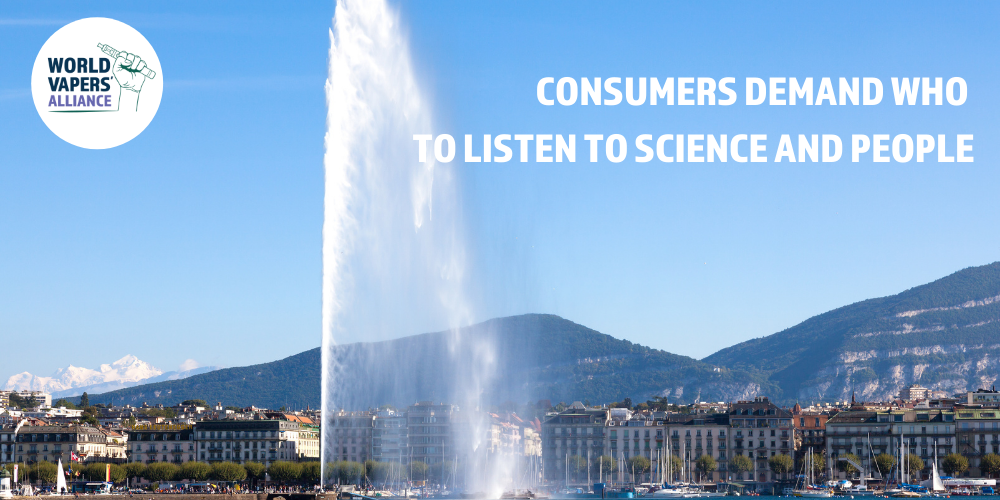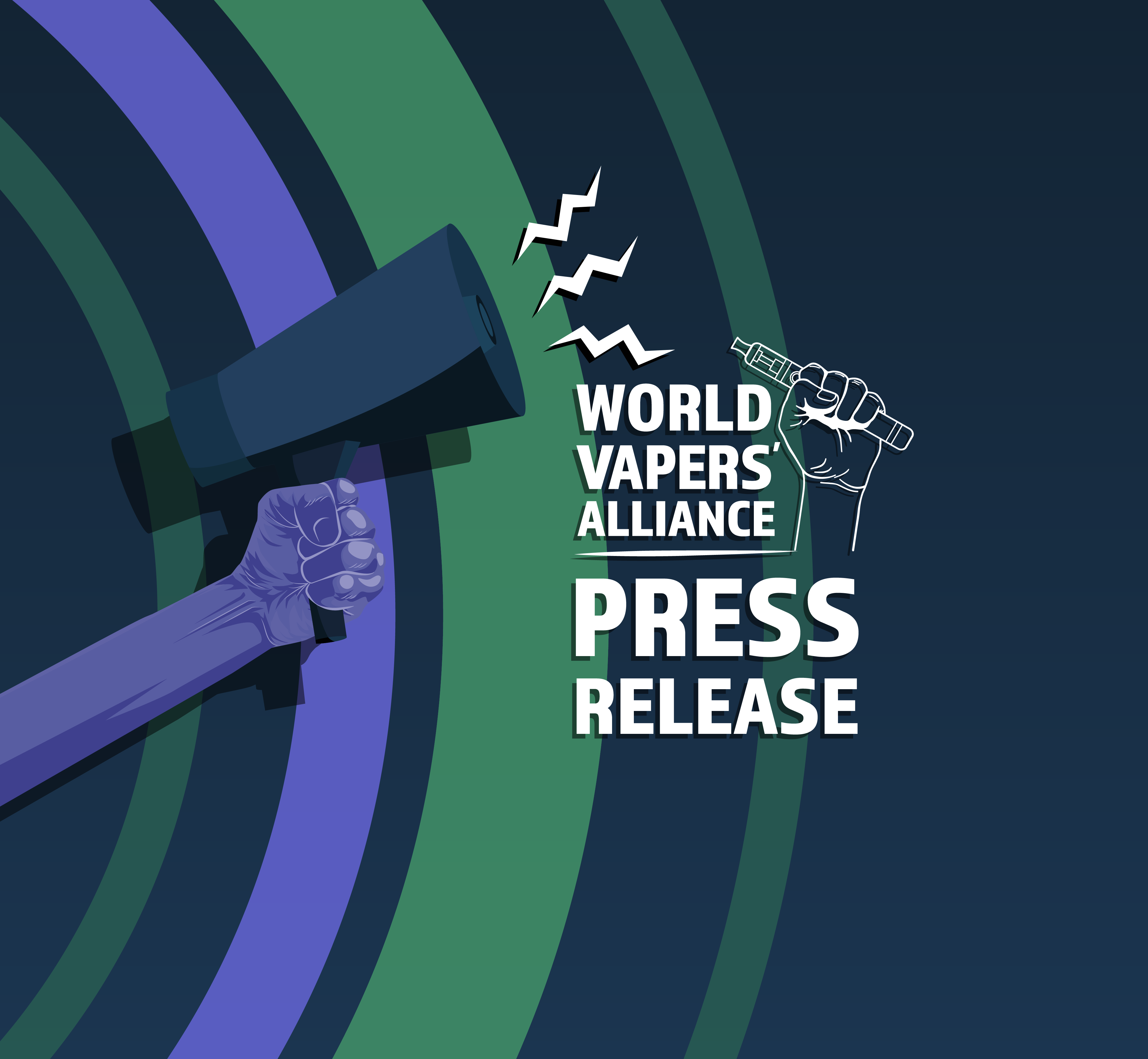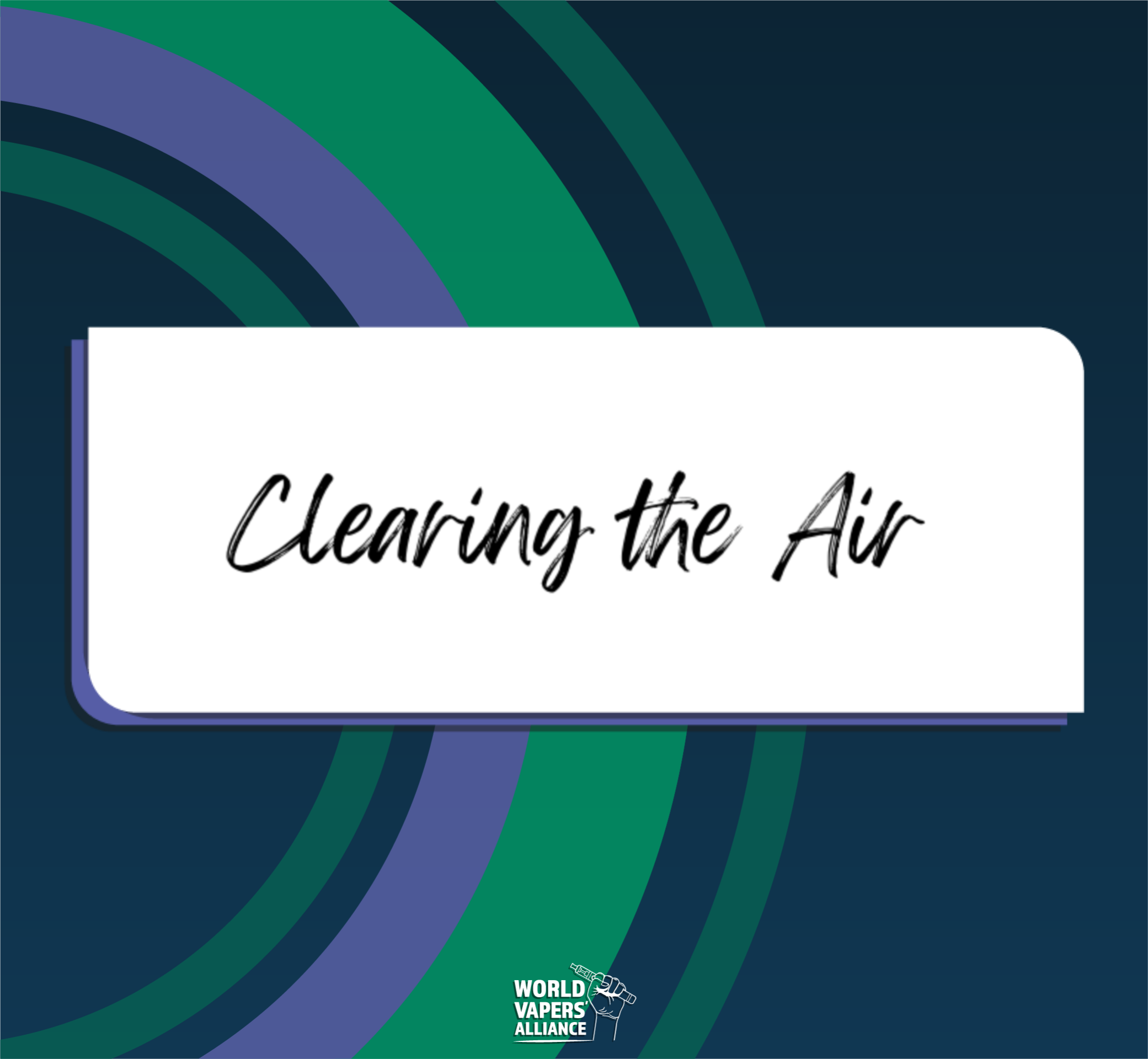Earlier this week, 100 top experts in the field of tobacco harm reduction – including WVA’s scientific advisor Prof. Bernhard Mayer – sent a clear message to the WHO: The war on vaping and other alternatives must end!
Dr. Mendelsohn, an Australian expert has clearly made the point that the current anti-vaping approach from the WHO will “lead to more death and suffering from smoking” and he is right! Vaping already helped millions of smokers to quit for good. The WHO must finally listen to consumers and science to save 200 million lives around the world.
The World Vapers’ Alliance stands fully behind the experts and urges the WHO to rethink its current position on vaping and similar alternatives. We present below our three main requests from the World Health Organisations ahead of their tobacco control conference COP9 in November:
CAD A BHFUIL TOMHALTÓIRÍ ÓN CÉ:
- NA MODHANNA A LAGHDÚ Díobhála TOBAC A AITHINT AGUS A CHUIMSIÚ
- AN CEART CHUN ROCHTAIN AGUS INACMHAINNE DO THOMHALTÓIRÍ
- THE EFFECTIVE PARTICIPATION OF CONSUMERS IN DISCUSSIONS AT COP9
Millions of consumers around the world have quit smoking with the help of less harmful alternatives. Harm reduction products (vaping, nicotine pouches, snus, and others) can save millions of lives. There is an enormous weight of evidence supporting these arguments.
Therefore, we request the endorsement of alternative tobacco harm reduction methods and a fair representation during COP9.
- The World Health Organization must endorse Tobacco Harm Reduction
Smoking is one of the leading causes of illnesses and death in the world. More than eight million people die each year due to smoking, with almost 99% of tobacco-related deaths smoking-induced – not from other forms of nicotine consumption. Reducing the number of smokers and allowing them to rapidly and efficiently switch to a less harmful alternative should be a major priority for the WHO and public health agencies worldwide.
However, at the moment, the WHO treats less harmful alternatives exactly the same way as smoking. The WHO needs to change its approach and endorse harm reduction. It must focus on helping smokers quit, rather than waste time on combating products that do the same.
Despite the Framework Convention on Tobacco Control’s (FCTC) commitment to tobacco harm reduction the WHO and the FCTC secretariat continue to call for stricter regulations of less harmful alternatives.
- Guarantee access and affordability of less harmful alternatives
To reduce smoking rates, we need to use all possible methods that prove to be successful. That means also ensuring these products are available, affordable and information about them is accessible.
We already have real-world examples of what access to harm reduction methods can achieve.
- In the UK, Public Health England, an agency of the Ministry of Health, is actively recommending smokers to switch to e-cigarettes. In the UK smoking rates have fallen by 25% since 2013 (when vaping became popular). By contrast, in Australia which has some of the world’s toughest vaping regulations, smoking rates fell by just 8% in the same period.
- Due to the openness towards snus, a form of smokeless tobacco, Sweden is reporting the lowest adult smoking rate in the developed world, at just 7%. The result is lower rates of smoking-induced illnesses. Norway experienced similar success due to its openness towards snus.
The WHO must end its war on vaping and other innovative harm reduction tools. Recommendations for increased taxation, flavour bans or outright prohibition must be withdrawn.
- Consumers and organisations in the field of Tobacco Harm Reduction need to be heard
In recent years, the WHO has rejected the participation of consumers and harm reduction experts in their decision-making process. It has become an island unto itself, an echo chamber of the same tobacco control groups with their view of the world stuck at least 30 years ago.
The media and the public are barred from observing or participating in the COP proceedings. Ignoring the voices, the experiences and the vast knowledge of harm reduction experts and consumers is hurting the cause. It flies in the face of transparency and good governance.
We ask the WHO to end the de-facto prohibition of open debate during COP and to establish new multi-stakeholder dialog platforms. Smokers and former smokers, consumers of less harmful alternatives as well as independent tobacco harm reduction experts need to have a voice when it comes to decision making.
We urge the WHO and the FCTC secretariat to endorse new approaches and be open to innovation in harm reduction and stop ignoring millions of consumers and experts of the field. The facts cannot be ignored any longer.




